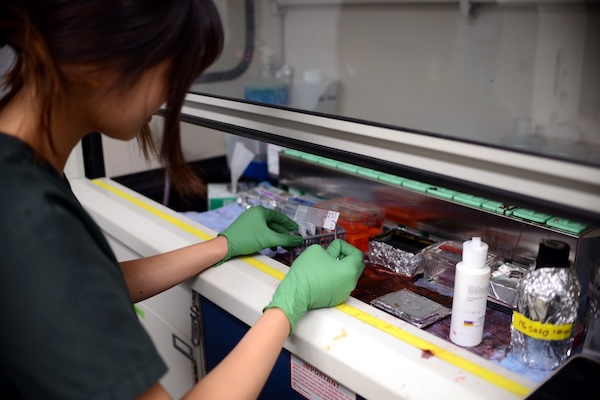
Roughly one in three Americans suffers from osteoarthritis, a progressive disease that causes joint cartilage to break down in a vicious cycle. The less cartilage, the more wear and tear on the joints, which further weakens the remaining connective tissue. In addition to joint pain, the condition can lead to loss of joint function, making it extremely hard to complete tasks of daily living.
At present, osteoarthritis has no cure. Zhiliang Cheng, Research Associate Professor in Bioengineering (BE), has studied the use of nanotechnology to treat the disease for years. In collaboration with Ling Qin, Professor in Orthopedic Surgery within the Perelman School of Medicine, Cheng developed nanoparticles that activate the epidermal growth factor receptor (EGFR) pathway, increasing the expression of genes that promote healthy cartilage.
This summer, Sidney Wong, a rising second-year in the School of Arts and Sciences, built on Cheng and Qin’s research in the lab of Kyla Ortved, Jacques Jenny Endowed Term Chair of Orthopedic Surgery and Associate Professor in Large Animal Surgery at the School of Veterinary Medicine, studying the EGFR pathway in horses, whose joints resemble those of humans.
“What I’ve observed so far has been pretty promising,” says Wong, who found that equine cartilage treated with the nanoparticles appears healthier.
